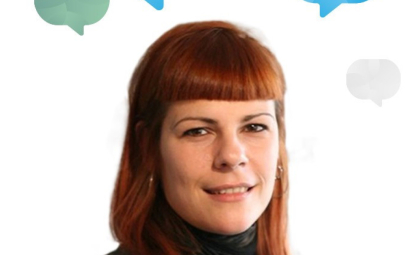

Is happiness at work a myth or a reality?
What does happiness at work mean?
Saša: I see happiness at work as a set of feelings we experience when we are at work or when we think about our job. By that I do not mean (dis)satisfaction with those things that we think about on a rational level (earnings, private health insurance, working conditions, food and drink, etc.) but only the feelings we feel when working. I would say that we are happy at work when we feel good more often than bad.
Bojan: Happiness at work has little to do with money, progress on the hierarchical ladder or social position; happiness is achieved when we greet each other, enjoy coffee together or discuss various topics. Business experience and practice have shown that when employees are happy they are more productive, more ready for various roles, more resilient, more creative and transfer their satisfaction to clients and associates. A positive environment and happy employees should be a priority for all companies as personal job satisfaction is the key to better work and a better life. That is why we should strive to find ways to improve employees’ happiness at work today so that they could feel their purpose, feel they are included, be more resistant to negative influences from the environment, but also find a way to have fun along the way.
In your experience, what are the universal factors affecting employee happiness?
Saša: I believe it is necessary to establish good interpersonal relationships and/or visible results to be happy at work. When it comes to interpersonal relationships, I mean both relationships with colleagues (including superiors and subordinates) and relationships with clients. By results I mean progress in personal and/or professional development, successful completion of tasks, transfer of knowledge and the like.
Bojan: The path to a successful career implies first choosing the right company, and then the job that makes us happy, as only in that way can we be better at activities we perform, and thus more successful. I would further highlight adopting a mindset and perspective that will allow us to see that happiness is all around us and that every job or occupation, no matter how meaningless it may seem to us, has three important goals - to see the purpose of our work, to enjoy it and to be good at it. The company should give us the opportunity to be ourselves at work and enable us to change the course of our career over time if we want. It is a universal factor that affects happiness and IKEA is proud of that.
If we compare tangible and intangible benefits, what are, in your opinion, the most effective motivators for happiness at work? A brief comparative analysis between white & blue collar?
Saša: I believe that benefits can, to a greater or lesser extent, affect our feeling of job satisfaction, but not our happiness at work. If, for example, I think about my earnings and consider it adequate, if I have private health insurance paid by the company and a comfortable chair, I will probably be satisfied at work. However, if I also I have a bad relationship with my superiors and I fail in tasks assigned to me, the chances are huge that I will be unhappy at work.
To avoid confusion, with this example I do not want to diminish the importance of job satisfaction and various perks - especially for people who are primarily motivated by material gain.
Bojan: Scientific studies of happiness have found that lasting job satisfaction never comes solely with increased earnings or material benefits, as the happiness employees feel after a raise or promotion lasts for a very short time. From my point of view, true happiness at work comes if we are good at what we do and if we are grateful for what we have. If we know that something we have accomplished has brought good to someone or made the world a better place, it will give us real meaning and purpose - and these are great drivers of satisfaction and happiness. Relying on this, IKEA provides a package of benefits equal for all and tailored to all employees.
Is happiness at work conditioned by the company’s economic stability?
Saša: When I asked the same question to someone who has been studying happiness at work for years, I received, in response, a story about a doctor who works in a hospital with very limited resources and for a small salary, is very dissatisfied with working conditions, but saves lives every day and because of that he is happy at work. As far as companies are concerned, I believe that their economic stability is an essential prerequisite for happiness at work, but does not necessarily imply the happiness of employees.
Bojan: According to the hierarchy of needs, the economic stability of the company is important, but it is not actually a purpose in itself since, although it provides a dose of security and carefreeness, employee happiness needs additional incentives. The economic situation in our business world is constantly changing, but regardless of the existing circumstances, we ourselves can strive to improve business conditions, relationships with colleagues and the business itself, which will definitely bring us more satisfaction. So, happiness at work does not depend solely on the economic stability of the company, but also on ourselves and the company's care for employees’ needs.
Since happiness at work is a relatively new concept, is the happiness at work issue an upshot of labor shortages in the labor market? If your answer is yes, do you think that the economic impact of Covid 19 will change this concept?
Saša: Vega IT dealt with happiness at work twelve years ago, and many other companies have invested in happiness at work long before us, so I would not call this a new concept, nor would I associate it with a labor shortage in the labor market (we definitely did not had such a shortage in Serbia twelve years ago). I believe that attitude towards investing in happiness at work is exclusively at company's leader discretion and has little to do with the situation on the labor market, with global or local crises, or anything like that.
Bojan: All disasters, including the impact of COVID-19 pandemic, have unpredictable economic and social repercussions. In such circumstances, employees in high-trust companies have shown to find better ways to mutually connect and support each other in difficult times. Sometimes such unexpected circumstances make employees show greater solidarity and care for each other and feel happiness boost after the crisis - despite the company's business losses. For these reasons, I believe employee happiness at work will play an even greater role and gain importance in the coming period.
How is a strategy for employee happiness built?
Saša: It's very simple. For starters, we should genuinely care about the people we work with. Then we need to believe that the company, if dealing with this issue (primarily, therefore, with how people feel at work), will at least maintain the same level of success. The next step is to listen to our employees and learn from what we hear from them. There is also a lot of learning material, primarily books about the experiences of companies that have been dealing with this topic for years.
Bojan: The strategy for employee happiness is built on the foundations of organizational culture and company values that achieve more than words since they carry true meaning. Although we may not notice it directly, every day when we come to work we see values in action. They help us run our business, solve problems and invest effort in what we do. They also make up a pattern of our potentials development, encourage us to believe in ourselves, to be able to express ourselves and be our own, which makes us happier. We need to disperse values that will inspire and maintain a positive atmosphere at work and contribute to greater motivation, success and happiness of employees.
Is the happiness at work issue included in companies’ internal questionnaires as a relevant factor for employee management or is it a new trend that is still not measured in our area? Should measuring job satisfaction be supplemented by measuring happiness?
Saša: Our company has developed a tool that allows us to have weekly insight into how our colleagues feel at work. This is just a supplement to measuring job satisfaction, as we believe that both are very important for the company's success. This tool is called Heartcount and is available globally (there is also a Serbian language version, and there is currently a promotional period when companies can try out our product for free).
Bojan: Community, or in Swedish "tillsammans", is at the heart of everything IKEA does as a company. Each of us is important, everyone's voice is listened to, and we all participate in the company’s business results. For more than 15 years, we have been using a special platform for anonymous and comprehensive gathering of impressions and suggestions of all employees, which includes measuring happiness at work, aimed at creating a better work environment and improving the satisfaction of our colleagues. From year to year we have been striving to make this solution simpler and more meaningful, adding more surveys over time, with quick access to results and clear steps that will contribute to making IKEA employees happier at work.







